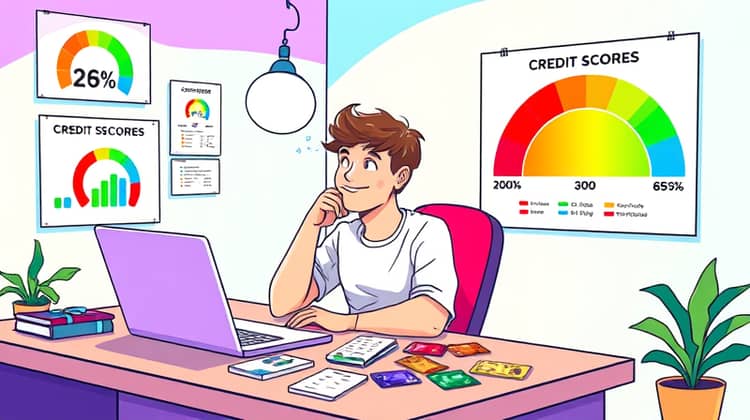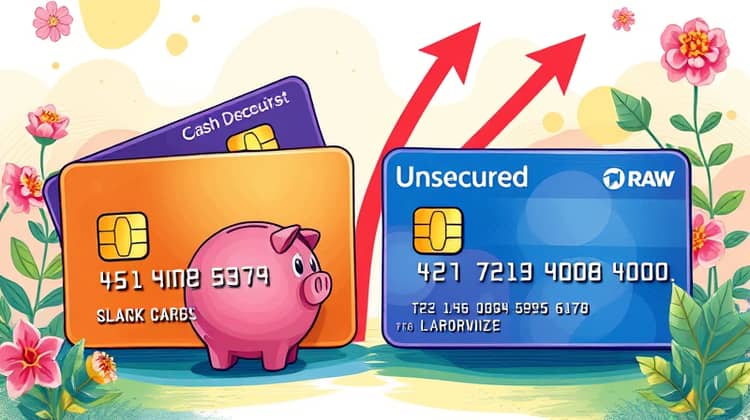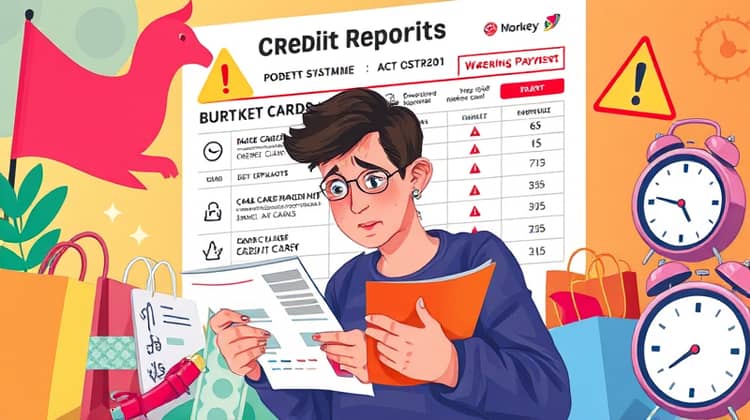Building credit is an essential part of financial independence and stability. One of the most effective tools to help you establish and improve your credit score is a credit card. However, using a credit card for this purpose needs to be approached with knowledge and strategy. This guide will help you understand how to use credit cards to build credit effectively, ensuring you avoid common pitfalls while leveraging their benefits.
In this article, we will cover various aspects of credit cards, from understanding credit scores to choosing the right card for your financial situation. By the end, you will have a comprehensive overview that empowers you to make informed decisions regarding credit cards and your overall credit health.
Let's dive into the details of how credit cards work, their types, and how they can be beneficial in your journey toward good credit.
Understanding Credit Scores

Credit scores are numerical representations of your creditworthiness, which lenders use to gauge the risk of lending you money. They typically range from 300 to 850, with higher scores indicating better creditworthiness. Understanding your credit score is vital, as it can significantly impact loan approvals, interest rates, and even rental applications.
Your credit score is influenced by various factors, including payment history, amounts owed, length of credit history, new credit inquiries, and credit mix. Payment history is the most significant factor, making it essential to prioritize timely payments on all your debts, including credit cards.
Monitoring your credit score and understanding its components can help you take the necessary steps to improve it. Regularly reviewing your credit report also allows you to catch any errors that could harm your score, enabling you to rectify them promptly.
- Credit scores typically range from 300 to 850.
- Payment history is the most significant factor influencing your score.
- Monitoring your credit report helps detect errors that could impact your score.
Improving your credit score takes time, discipline, and a well-thought-out strategy. It is crucial to establish good financial habits early on, especially if you are new to credit. Education around the credit system and nurturing a healthy credit profile can lead to greater financial opportunities down the road.
As you begin to understand how credit scores work, the next logical step is to consider the role of credit cards in establishing and improving these scores. Credit cards can either be a stepping stone to good credit or a hindrance, depending on how you use them.
In the next section, we will explore why credit cards are pivotal in building your credit history and enhancing your financial prospects.
Why Credit Cards?

Credit cards can serve as a powerful tool for building a solid credit history. Since credit scores heavily weigh payment history, timely payments on credit card balances can significantly boost your credit score. This explains why responsible credit card use is often recommended for individuals looking to establish credit.
Moreover, credit cards provide a convenience that other forms of credit may not offer. With credit cards, you can make purchases online or in-store without needing cash, and many credit cards offer rewards programs, which can be a bonus. However, it's crucial to be mindful of spending limits to avoid overspending and accumulating debt.
Credit cards also help diversify your credit mix. Lenders prefer borrowers who can manage various types of credit effectively. This diversification can play a critical role in optimizing your credit score, provided you manage your credit cards responsibly.
- Timely credit card payments improve your credit score.
- Credit cards offer convenience in making purchases.
- Having a variety of credit types can enhance your credit profile.
Secured vs. Unsecured Credit Cards

When looking to build credit, understanding the difference between secured and unsecured credit cards is crucial. Secured credit cards are typically designed for individuals with little to no credit history. To obtain a secured credit card, you need to make a cash deposit that serves as collateral and determines your credit limit. This deposit reduces the risk for the lender and can help individuals establish credit more easily.
On the other hand, unsecured credit cards do not require a deposit. Instead, these cards are issued based on your creditworthiness and typically require some form of credit history. Unsecured cards offer more benefits, such as higher credit limits and reward programs. However, these are mainly available for those with established credit.
Choosing the right type of card for your situation is vital, as secured cards can lead to improved credit while paving the way for you to qualify for an unsecured card in the future. Understanding your financial needs and journey is essential to making the right choice.
Secured Credit Cards
Secured credit cards are an excellent option for individuals who are just starting to build their credit profile or have had difficulties in the past. The deposit you make serves as your credit limit, providing a safety net for the issuer. Using this type of card responsibly—by making small purchases and paying off the balance in full each month—can have invaluable benefits for your credit scores.
Many people who use secured credit cards effectively can often transition to unsecured cards within a year. Regular, on-time payments demonstrate responsible debt management, which is favorably viewed by lenders. Furthermore, this transition can lead to access to higher credit limits and better interest rates.
However, it is essential to choose a secured card that reports to the credit bureaus. Not all issuers do, so confirming this detail before signing up is crucial. Successful management of a secured credit card can set you up for long-term financial health and security.
- Secured cards require a refundable cash deposit as collateral.
- On-time payments can lead to transitioning to unsecured cards.
- Make sure the issuer reports to credit bureaus.
Unsecured Credit Cards
Unsecured credit cards are financial products offered to individuals who have established credit history and demonstrate creditworthiness. Unlike secured cards, unsecured cards do not require any cash deposits, which makes them more popular among individuals with a good credit score. Many unsecured credit cards also offer rewards programs and other incentives that guilt cardholders into responsible spending habits.
The approval of an unsecured credit card usually depends on your credit score as well as your overall financial profile, including your income and debt-to-income ratio. Because of the minimal risk to the lender, unsecured cards often come with higher credit limits, thereby providing users more flexibility and freedom to spend.
While unsecured cards can provide significant advantages, they also require strong discipline. It's essential not to carry high balances or miss payments, as these actions can negatively impact your credit score and cause further financial strain.
- Unsecured cards do not require a cash deposit.
- They usually come with higher limits and rewards programs.
- Remember to manage your spending to avoid high balances.
Key Differences
Understanding the key differences between secured and unsecured credit cards can significantly impact your credit-building journey. As previously mentioned, secured credit cards require a deposit as collateral, which reduces the risk for the lender. In contrast, unsecured cards rely on the borrower's creditworthiness alone, which can be both a benefit and a risk depending on one's credit history.
Another critical difference is the benefits associated with each type. Unsecured cards typically offer rewards, cashback, and various perks that secured cards may lack. Since they cater to individuals with established credit, these cards come with fewer fees and higher spending limits than secured options.
Ultimately, the choice between secured and unsecured credit will depend on your current credit status and financial goals. Those starting their credit journey may prefer secured cards for easier approval, while those with solid credit histories can benefit from the perks unsecured credit cards offer.
How to Use a Credit Card to Build Credit

Using a credit card to build credit requires a strategic approach to ensure effective results. First and foremost, make timely payments on your outstanding balance. Payment history constitutes a large portion of your credit score calculation, so establishing a habit of paying on time is crucial in this process.
Next, strive to keep your credit utilization ratio low by charging only what you can afford and paying off your balance in full each month. This practice not only helps maintain a healthy credit score but also fosters responsible spending habits and minimizes the risk of accumulating debt.
- Pay your credit card bill on time, every time.
- Keep your credit utilization ratio below 30%.
- Monitor your credit report regularly for errors.
Tips for Choosing the Right Card

Selecting the right credit card for your needs can be the difference between building credit wisely and falling into debt. Research various card options, focusing on their fees, interest rates, and rewards programs to ensure they align with your financial goals.
- Look for cards with no annual fees.
- Consider rewards programs that suit your spending habits.
- Check whether the card reports to credit bureaus.
Common Mistakes to Avoid

While using credit cards can help build credit, it's easy to fall susceptible to costly mistakes. One of the most common errors is overspending; it can lead to unmanageable debt and damage your credit score if you are unable to pay your bills on time.
Another frequent mistake is ignoring your credit reports or failing to monitor your accounts. Regularly reviewing your reports can help you catch errors or signs of fraud early on, preventing long-lasting damage to your credit profile.
- Avoid spending beyond your means.
- Do not ignore your credit reports.
- Make sure you have a budget to manage expenses.
The Path to Good Credit

Building and maintaining good credit is an ongoing process that takes time, commitment, and knowledge. As you develop your credit profile through the responsible use of credit cards, consistent payments, and careful monitoring, you’ll start to see improvements in your credit score. Over time, these improvements can translate into better interest rates for loans and more favorable credit terms.
It's essential to remember that building good credit does not happen overnight. Practicing sound financial habits and being patient with your credit-building journey will lead to long-lasting financial benefits. Always keep an eye on your credit health, continuously improve your knowledge about credit, and remain disciplined in your financial decisions.
Eventually, your efforts will not only enhance your credit score but will also open up a world of opportunities, making it easier to secure loans for big-ticket purchases, such as a car or a home, at favorable terms.














